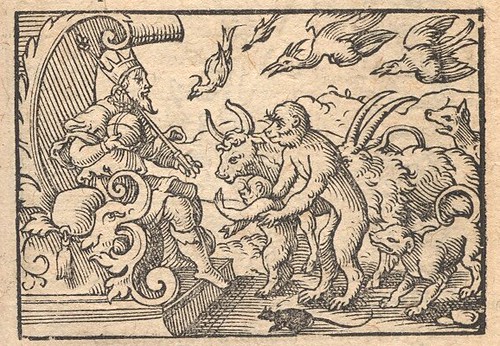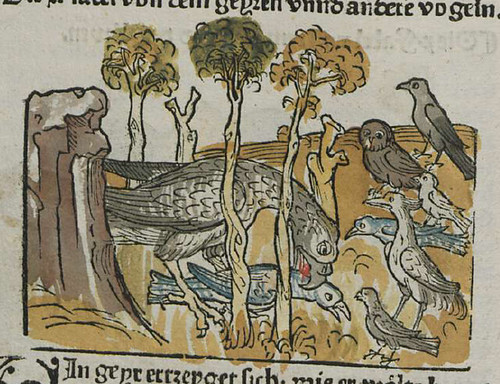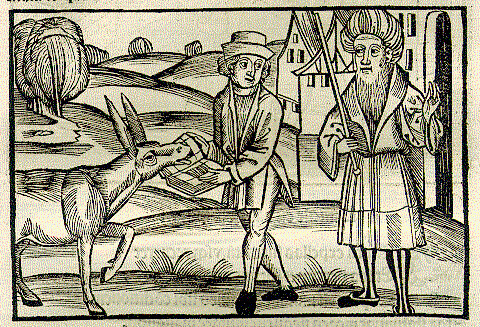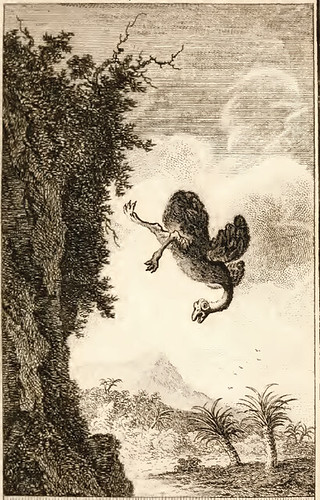The regular blog is below, but first - an announcement. It's a nice Christmas present from Blogger: mobile templates! If you had found it difficult/impossible to read this blog on a mobile device, take a look now. You should automatically see the mobile view displayed (and yes, you can also get the old web version by scrolling down to the bottom of the mobile screen). Here's what it looks like on my iPodTouch: I like it! For those of you who have your own Blogger blogs,
here's how to set up your blog for mobile display. :-)
 HODIE: ante diem undecimum Kalendas Ianuarias
HODIE: ante diem undecimum Kalendas Ianuarias (and yes, you can have your own
Roman Google Calendar).
HOLIDAY SONGS: The Latin holiday songs for today are:
O Parve Vice Bethlehem, a Latin version of "O Little Town of Bethlehem," along with
Magi, omnis orbis reges, a Latin version of the Polish carol, "Mędrcy świata, monarchowie."
VERBUM HODIERNUM: Today's word is
PARO - read a
brief essay about the word at the
Verbosum blog. Here's one of the sayings you can find in the essay:
Sibi parat malum, qui alteri parat, "The person who prepares evil for another is preparing evil for himself."
FABULAE FACILES: The new easy-to-read fable is
Corvus et Mercurius, the story of a hypocritical crow and his occasional piety.
BESTIARIA PROVERBS: There are some new animal proverbs today for
HAEDUS, the kid, and
LUSCINIA, the nightingale.
MILLE FABULAE: FABLE OF THE DAY: The fable for today is
Tubicen Captus, the story of the trumpeter who became a prisoner of war. (You can also a
free PDF copy of the
Mille Fabulae et Una book - and there's an
English fable of the day, too.)
AESOP SLIDESHOW: Today's Aesop slideshows are
Vultur Convivium Faciens, the vulture's deadly birthday party, and
Muli et Latrones, the two mules and the robbers. (For all the Aesop images, visit
Flickr.)
GOOGLE BOOKS: Today's Google Books are both mythological works:
Frazer's Golden Bough (all three editions) and
De Gubernatis's Zoological Mythology.
TODAY'S MOTTOES & PROVERBS:
Widgets available at SchoolhouseWidgets.com.3-Word Mottoes: Today's 3-word motto is
Quod potes, tenta (English: Try what you are able to do - a Latin "be all that you can be" motto!).
3-Word Proverbs: Today's 3-word proverb is
Necessitas feriis caret (English: Necessity knows no holidays - so yes, alas, I still have to do the housecleaning during the delightful winter vacation).
Rhyming Proverbs: Today's proverb with rhyme is:
Quisquis amat ranam, ranam putat esse Dianam (English: He who loves a frog thinks that frog is the goddess Diana - of course, that is a proverb which suffers from the lack of rhyme in English, ha ha).
Vulgate Verse: Today's verse is
Comede in laetitia panem tuum et bibe cum gaudio vinum tuum (Ecc. 9:7). For a translation, check out the polyglot Bible, in English, Hebrew, Latin and Greek, at the
Sacred Texts Archive online.
Elizabethan Proverb Commentary: Here is today's proverb commentary, this time by Conybeare:
Tollere cristas:
To set up the creaste. Applied to them that be proude or arrogant, and do stretche upp there browes with a disdaynefull countenance.For an image today, I thought I would include one of the illustrations for the vulture's birthday party,
458. Vultur Convivium Faciens. Vultur, volens laute prandere et ventrem suum delicatis cibis infarcire, invitavit aviculas ad convivium, natalem suum, ut dicebat, celebraturus. Haec fama exiit inter eas et hoc aucupio incautas fefellit. Veniunt igitur undique, existimantes invenire mensas omnis generis deliciarum refertas, non de suo paraturas. Sed ubi, adventatis ac coactis omnibus, fores occlusae sunt et vultur rapere et mactare et occidere coepit, “O insanas nos et vecordes,” inquiunt, “quae vulturi, inimico nostro, fidimus, et apud eum putantes reperire escas, ipsae eius escae factae sumus.” (
source):





































